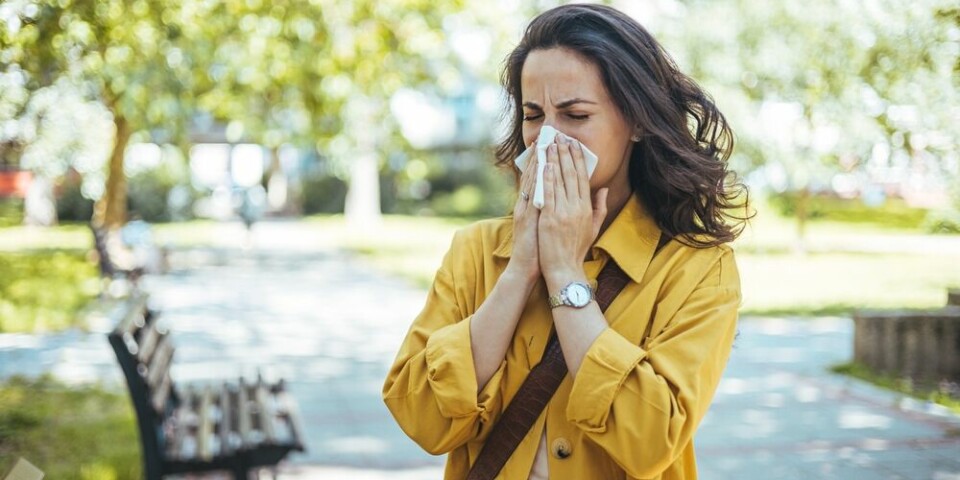-
France’s €3 book delivery fee challenged in EU court by Amazon
Online retailer said measure is protectionist and ‘in breach of EU laws’
-
100 more supermarkets in south of France are to rebrand to Carrefour
Stores impacted are small convenience shops in the centre of cities or smaller supermarkets in rural towns or villages
-
Rules change for dog walking in France from April
Here is how to ensure you and your dog remain within the rules and avoid fines
The rise of France’s boutique pet accessory market
Consumer spending on pets is soaring – and owners are willing to pay more for long-lasting, quality products.

The pet sector in France is booming. According to a study by Les Echos, 2019 was a record year with a growth of 4.3% compared to the previous year. Most is spent on cats and dogs which make up 80% of the market. Another market research company Imbrikation says one in two households has a pet and the market has increased by 48% over the past 10 years.
They conclude there has been a change in mentality so that pets are increasingly considered as a member of the family with their own special requirements. There are more and more design accessories on offer so dog baskets blend in with the home décor, and offers to make sure your pet has everything from a good shampoo to the right insurance and, at the end, the possibility of an ecological, degradable coffin.
Is it legal for neighbour to keep 16 dogs in French garden?
Durable, quality pet products
There are gift boxes for cats and dogs. For €19.90 a month Woufbox will deliver six products to suit your dog (depending on size) including toys, treats, accessories and hygiene products. Around three-quarters of the market is in cat and dog food. Owners want pets to have the same criteria applied to them as to their own food. Organic and locally sourced food are growing in popularity.
The two giants, Nestlé (Purina with Friskies, Fido, Pro Plan etc ) and Mars (Pedigree, Whiskas, Royal Canin, etc) are in competition to show who can produce healthy food for pets to tuck into. There are alternatives for every age, race, state of health, budget and lifestyle for both cats and dogs. ‘Beyond’ is Purina’s natural range where they guarantee no artificial colorants, odours or preservatives and there is an organic mix. The Mars Canigou brand has a recette allégée guaranteed 25% less fattening than equivalent dog foods.
Another trend is to choose Biologically Appropriated Raw Food (often shortened to the unpleasant-sounding BARF) to take into account the fact your dog or cat is close to a wild animal and would prefer to eat fresh, raw food. Pet-friendly start-up Klep’s sells quality food and accessories for dogs. It sells BARF meat from its fridge as well as other pet food brands covering a range of promises to be organic, grain-free, junk-free, fresh and family farmed, healthy, tasty, succulent and irresistible.
500,000 sign petition for French vote on animal cruelty
Elegance and choice appreciated by consumers
The company’s slogan is “I’m not a dog. I’m a Klep’s”. It is an online shop with a boutique which opened this year in Paris and plans to expand across the country. Its co-founder, Blanche Chouraqui, says it all started when she bought her first dog, a Shiba Inu called Matcha: “I found there was very little choice of products. In the out-of-town pet stores all you could find was a pink or green fluorescent plastic dog basket and collars and leads which were cheap and poor quality but didn’t last long. I decided to surf the net to find better quality and more elegant items which would not need renewing every few months. This included food, so that too would be better quality.”
Brexit: should I change UK pet passport to a French version?
She started putting her discoveries online and found there was a demand for this type of product: “Our dog collars for example cost around €35, more expensive than the €25 supermarket price but better value in the long term. As consumers become more ecologically aware they are prepared to pay more and buy less often. We do not want to be in the high-end fashion market, and hope to keep our products affordable. We don’t want to dress dogs up to look ridiculous, but recognise they are animals.”
Their clients tend to be young: “They are looking for something a bit rock n’ roll. Up until now this type of purchase has been hard to come by. We have lots of ideas including mini-workshops and we want to keep it fun.”
























